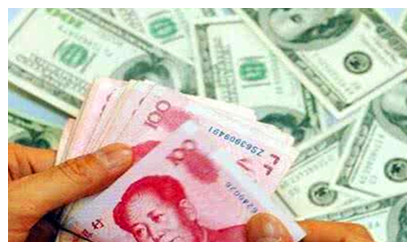Money matters are also important for travelers if you go to China. Here we talk about Chinese money matters so that you can make a good plan trip to China and you will have a wonderful China Tour.
Chinese currency is called Renminbi, which is issued by the People’s Bank of China. The unit for Renminbi is Yuan, and also Jiao and Fen. The abbreviated symbol of Renminbi Yuan is RMB¥.
 In China, such foreign currencies as US dollar, pound, French franc, German mark, Japanese Yen, Australian dollar, Austrian Schilling, Belgium Franc, Canadian Dollar, Hong Kong dollar, Swiss franc, Danish Krone, Dutch florin Guider, Norwegian Krone, Swedish Krona, Singapore dollar, Malaysian Ringgit, Italian Lira, Macao Pataca, and Finish Markka, etc. can be converted into RMB. Banks can provide foreign currency exchange business.
In China, such foreign currencies as US dollar, pound, French franc, German mark, Japanese Yen, Australian dollar, Austrian Schilling, Belgium Franc, Canadian Dollar, Hong Kong dollar, Swiss franc, Danish Krone, Dutch florin Guider, Norwegian Krone, Swedish Krona, Singapore dollar, Malaysian Ringgit, Italian Lira, Macao Pataca, and Finish Markka, etc. can be converted into RMB. Banks can provide foreign currency exchange business.
According to existing foreign exchange control laws and regulations of China, foreign currency circulation and foreign currency-based settlement are prohibited in the territory of China. For the convenience of foreign guests and Hong Kong, Macao and Taiwan compatriots’ consumption in China, Bank of China and other appointed banks provide foreign currency exchange business for 22 kinds of foreign currencies and New Taiwan dollar as well as such business as foreign currency traveler's check, foreign credit card in exchange for RMB. In addition, some hotels, restaurants or stores can also convert foreign currency into RMB. If the converted RMB notes are not used out, they may be converted into foreign currency within the period of validity of six months before the date of departure and then taken out of China. Exchange rate varies under different circumstances. Buying rate is used for traveler’s check, credit card and remittance conversion; selling rate is used for foreign currency in exchange for RMB, including foreign currency cash; and cash buying rate is used for RMB in exchange for foreign currency.
All major cards such as Visa, Master Card, American Express, JCB and Diners Club are readily accepted in major tourist cities. They can be used in most mid-range to top-end hotels (three-star and up), Friendship Stores and some department stores. Credit card cash advances are readily available at banks and ATM machines, even in places as remote as Lhasa. A 4% commission is generally deducted.Currently, business of the following foreign credit cards is available in China: 1. Master Card 2. Visa Card 3. American Express Card 4. JCB card 5. Diners Card
Using your ATM card is an excellent way to get cash in China. ATMs are available in most cities and airports in China. Money is issued in the local currency. Except in Hong Kong and Macao, having money sent to you, via an international money transfer, in China is a time-consuming and frustrating task that is best avoided.
Foreigners can indeed open bank accounts in China, Both RMB and US dollar accounts (the latter only at special foreign exchange banks). You do not need to have resident status, a tourist visa is sufficient.
Article 17 of the Regulations on the Foreign Exchange System of the People's Republic of China: Foreign exchange sent or carried in by foreign entities and foreign nationals in China can be held at their own disposal, deposited in designated banks or sold to the designated foreign exchange banks. Such foreign exchange can also be remitted or taken abroad upon the presentation of valid documents. This article implies that:
1. The foreign exchanges of foreign organizations stationed in China and individuals visiting China received or taken from abroad can be kept by themselves, deposited or sold to banks designated to handle foreign exchange businesses on the principle of free will. They can also be remitted or carried abroad by showing the original customs declaration form.
2. Foreign organizations stationed in China and individuals visiting China must pay all expenses in RMB after arriving in China. If the converted RMB notes are not used out, they may be converted into foreign currency within the period of validity of six months before the date of departure and then taken or remitted out of China.
3. Foreign organizations stationed in China and individuals visiting China are not allowed to buy or sell foreign exchanges privately in China.
Viewing from existing foreign exchange control regulations in China, there are only two legitimate means for the transaction between foreign currency and RMB: the banks providing foreign exchange transaction business and the China Foreign Exchange Trading Centre and its system. Transactions between foreign currency and RMB completed in a channel other than the above two means are all private foreign exchange transactions, regardless of their exchange rate. Private foreign exchange transactions are illegal behaviors disturbing financial orders and are prohibited by China’s laws. According to Article 45 of the Regulations on the Foreign Exchange System of the People's Republic of China, those engaging in foreign exchange transaction without permission shall be given a warning by foreign exchange management authority, and imposed the conversion of foreign exchange, and their illegal incomes shall be confiscated, and they shall be fined an amount more than 30% but less than 3 times of the illegal foreign exchange amount.
 Ask Questions ?
Ask Questions ?